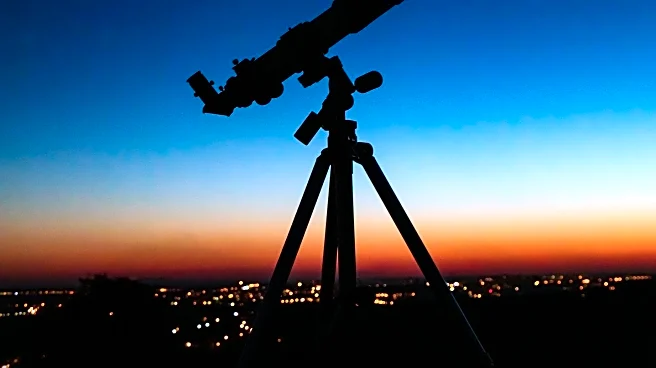What's Happening?
Golden West College, in collaboration with the Rotary Club of Huntington Beach, is set to host a free Community Science Nite on October 3. The event, aimed at students aged 5-17, will take place at the college's campus in Huntington Beach. It will feature interactive exhibits and demonstrations covering topics such as DNA collection, marine life, robotics, and biology. Attendees will have the opportunity to engage in activities like making slime, creating exploding gummy bears, and observing their own cells under a microscope. The event will be held in the Math & Science Building, with free parking available in Lot C. Registration will be located between the Math & Science and Public Safety buildings.
Why It's Important?
The Community Science Nite is significant as it provides a platform for young students to explore and develop an interest in science and mathematics. By offering hands-on experiences, the event aims to inspire future generations to pursue careers in STEM fields, which are crucial for innovation and economic growth. Engaging children in science at an early age can foster critical thinking and problem-solving skills, essential for addressing future challenges. The event also strengthens community ties by bringing together families and educators in a collaborative learning environment.
What's Next?
Following the Community Science Nite, Golden West College and the Rotary Club may continue to host similar events to maintain engagement with the community and promote STEM education. The success of this event could lead to more frequent collaborations between educational institutions and community organizations, enhancing educational opportunities for local students. Additionally, feedback from participants may guide future improvements and expansions of the program.
Beyond the Headlines
The event highlights the growing emphasis on STEM education in the U.S., reflecting broader educational trends aimed at preparing students for a technology-driven future. It also underscores the role of community colleges in providing accessible educational resources and fostering local partnerships. Such initiatives can contribute to reducing educational disparities and promoting inclusivity in science education.









